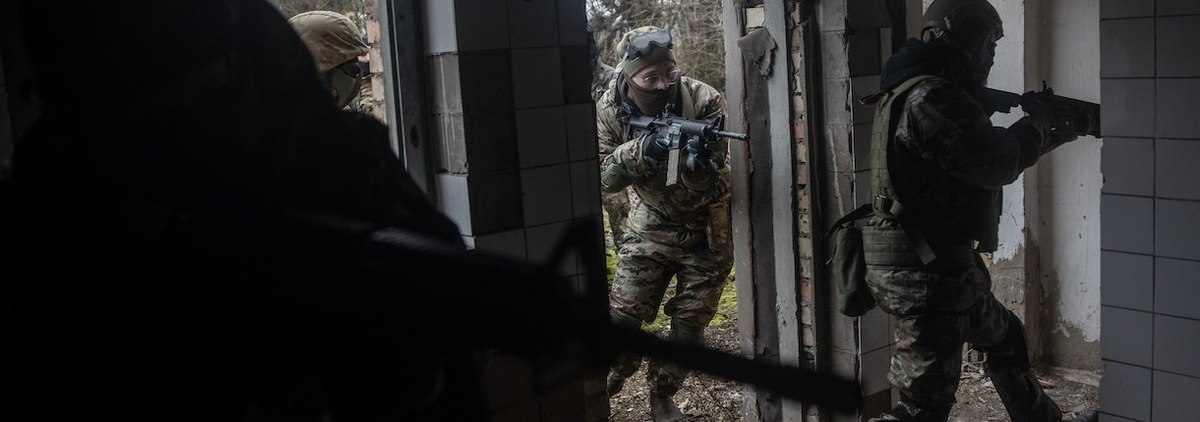One-third of Americans think that NATO’s expansion eastwards has contributed to worsening relations with Russia — despite this, most support NATO’s expansion into Europe, with seven in ten wanting Ukraine to join
The dissolution of the Soviet Union and its military bloc — the Warsaw Pact — saw most of its former European members join the North Atlantic Treaty Organization (NATO). Currently, NATO has 32 members. Following Russia’s full-scale invasion of Ukraine in 2022, Sweden and Finland — traditionally neutral European countries — decided to join the organization, becoming the newest members of the bloc.
The ongoing war in Ukraine and the rise in global tensions has amplified the question of whether NATO should expand or not.
The YouGov Big Survey on NATO and War finds that two-thirds (66%) of Americans favor the alliance’s expansion into Europe, with just one in seven (14%) opposing it. There's a significant contrast in the support for NATO expansion between supporters of Joe Biden and Donald Trump. While 86% of Biden supporters endorse NATO adding more European members, only 61% of Trump supporters do.
Americans who are 60 and older (74%) are more likely than adults under 40 (63%) to support NATO enlargement in Europe.
When it comes to support for specific European countries joining NATO, over eight in ten (84%) Americans would like to see Ireland become a member, with just 6% opposing it. Switzerland (83%) and Austria (79%) are other popular choices for NATO membership among Americans. The support for countries in southeastern Europe — such as Bosnia and Herzegovina, Serbia, Moldova, or Georgia — is significantly lower: about 50% or less for each country.
The Ukraine question and Russia
We also asked Americans if they would support Ukraine joining NATO. The country’s leadership had expressed a desire to join even before Russia’s invasion in 2022.
Seven in ten (72%) Americans are in favor, 14% oppose it, and 15% say they don’t know. The support for Ukraine joining NATO is high among all age groups: 75% of over-40s and 65% of under-40 adults.
Eight in ten Biden supporters (82%) and six in ten Trump supporters (63%) would like to see Ukraine in NATO.
Twice the share of Trump supporters as Biden supporters oppose Ukraine membership in NATO (19% vs. 9%).
After the Cold War, Russia and NATO entered talks and concluded a treaty that limited the number of conventional armed forces in Europe. During the 1990s, despite tensions, NATO and Russia were opening more cooperation channels. In 2001 the country’s leader, Vladimir Putin, even suggested to U.S. leaders for Russia to join NATO, but relations deteriorated later on.
We asked whether Russia should ever join NATO. One in five Americans said yes (19%), with the younger generation being more inclined toward Russia membership (31% of under-40s) than older Americans (18% among 40- to-59-year-olds and 9% among older adults). Two-thirds of Americans (65%) oppose the idea.
NATO expansion outside of Europe
Looking beyond Europe, Americans were asked whether some NATO membership should be open to other countries. In each case, support is under 50%.
Nearly half of Americans (47%) would like to see NATO membership be open to Israel, including 44% of Biden supporters and 60% of Trump supporters. When it comes to Saudi Arabia — another important U.S. ally in the Middle East — just 27% of Americans would back NATO membership being open to it, while 40% oppose the idea.
Just under half (44%) would like to see NATO membership be open to the Philippines — a former U.S. colony. Four in ten would support NATO membership being open to each of Brazil (42%), Argentina (41%), and India (38%). One-third of Americans (35%) would like to see NATO membership be open to Vietnam, but 30% oppose it.
In 2022 NATO declared China a security threat for the first time. Tensions with Beijing are one of the key foreign policy issues for the U.S. Despite this, one in five Americans (20%) think NATO membership should be open to China, while a majority (55%) disagree — including 57% of Biden supporters and 69% of Trump supporters.
Argentina became the most recent country to express interest in joining NATO. Four in ten Americans (41%) support NATO membership being open to Argentina, while one-quarter (25%) are against.
The impact of NATO expansion on Russia and peace in Europe
In his address at the Munich Security Conference in 2007, Putin accused the U.S. of undermining global security and criticized the expansion of NATO eastwards. This speech was later seen as a key moment after which the relations between Russia and the West started to erode. NATO denounced the accusations of trying to encircle Russia or endanger it.
Our study finds that one-third of Americans (36%) think that NATO’s expansion to other parts of Europe worsened relations with Russia, with a similar percentage of Biden (37%) and Trump (40%) supporters holding this view.
Just 14% think NATO’s addition of new European members improved relations with Russia while one-quarter (25%) think it had no impact in either direction.
Overall, more Americans think that NATO’s expansion eastwards has decreased the likelihood of war in Europe (38%) than increased it (22%).
Adults under 40 are notably more likely than older Americans to share the view of NATO expansion increasing the chances of a war (30% vs. 17%).
— David Montgomery contributed to this article
See the results for this YouGov poll
Methodology: This poll was conducted online on March 18 - 27, 2024 among 2,217 U.S. adults. Respondents were selected from YouGov’s opt-in panel to be representative of U.S. adults. The sample was weighted according to gender, age, race, and education. The margin of error for the overall sample is approximately 2%.
Image: Getty (Chris McGrath / Staff)







